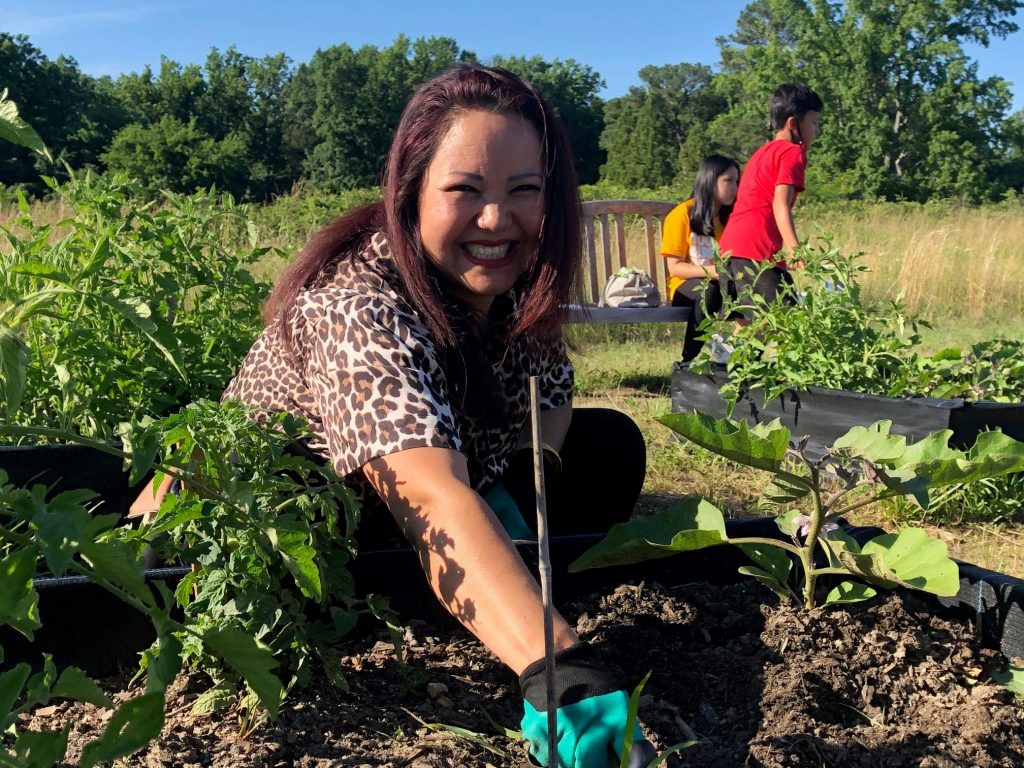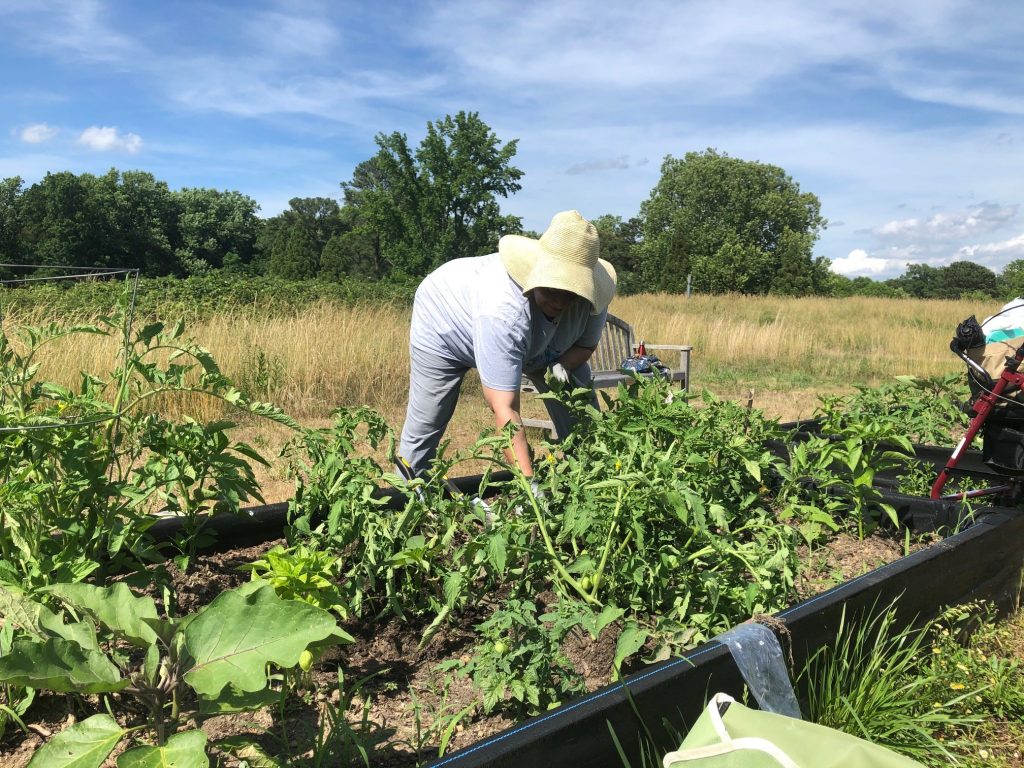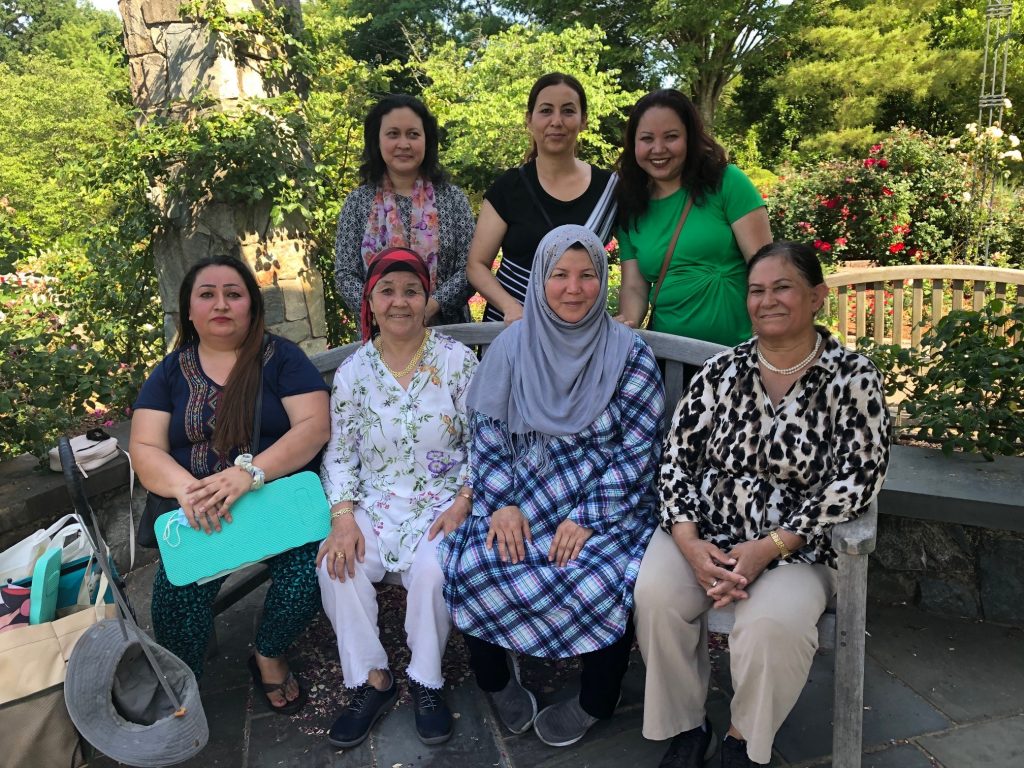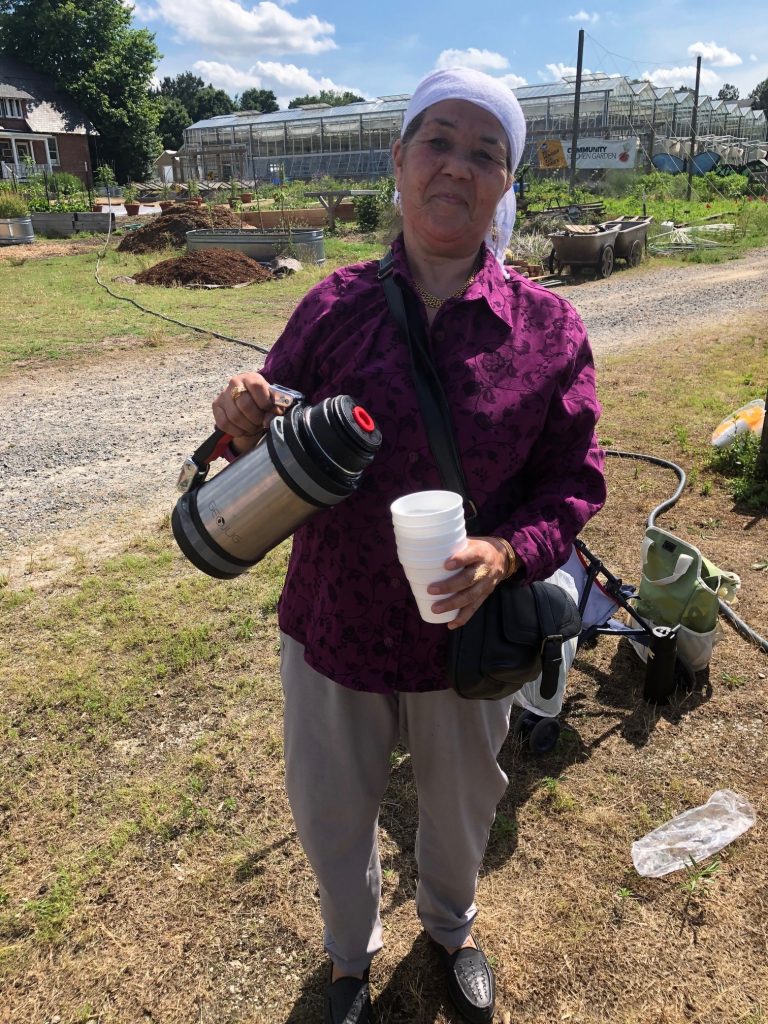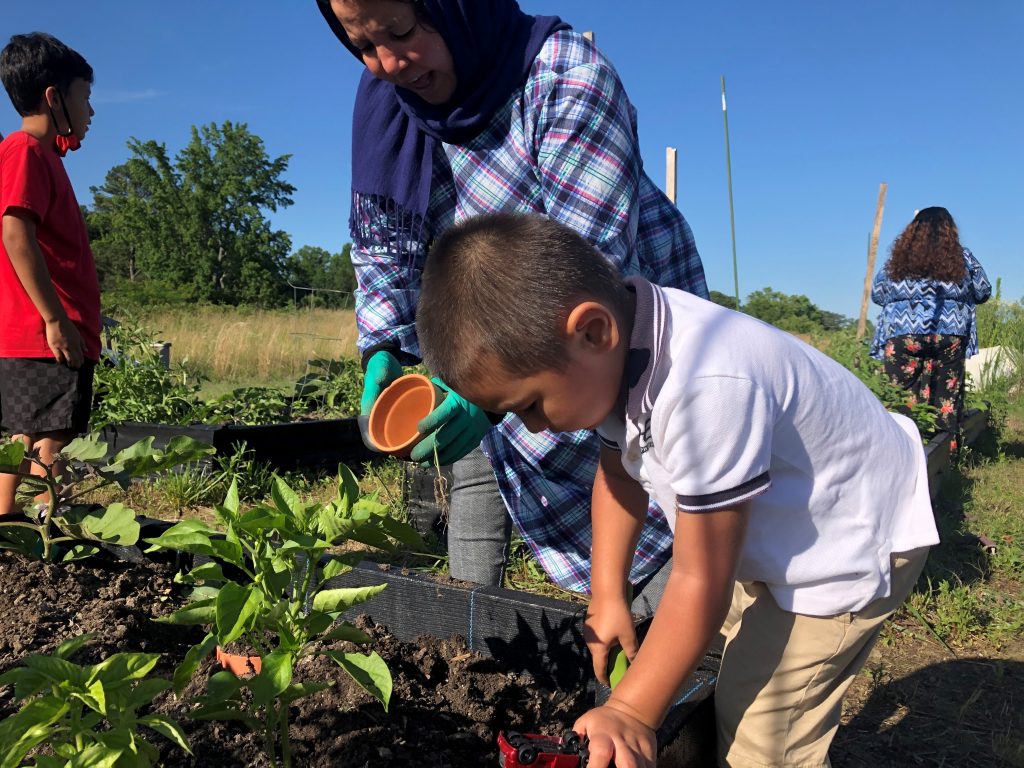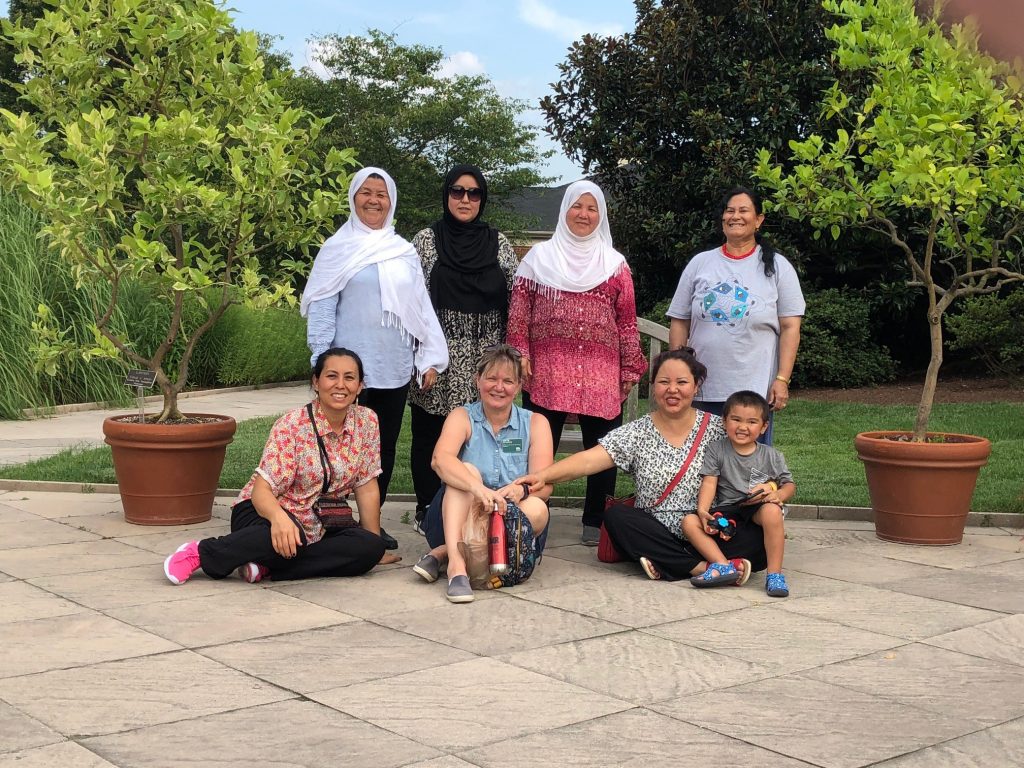Afghan Women’s Garden Beds
This blog post about the Afghan Women’s garden beds was written before the events in Afghanistan the week of August 16, 2021. The women continue to visit their garden beds and we continue to hold them, their families and friends close in our hearts.
The day is hot, but my friend Hameeda doesn’t seem to mind. She closes her eyes, turns a smiling face toward the sun, stretches both arms wide and giggles: “I love to be outside!” Hameeda explains her apartment doesn’t get much sunlight, and she and her four children miss it.
It has been my honor to get to know Hameeda over the past three years. I met her through my volunteer work with ReEstablish Richmond, a non-profit connecting refugees with resources to establish roots, build community and become self-sufficient. Hameeda is from Afghanistan and is a translator for her Afghan refugee community.
As Hameeda embraces the sunshine, we are standing in the Kroger Community Kitchen Garden at Lewis Ginter. Several other women and their children are nearby–planting, weeding and watering in seven raised beds.
They are all part of the Afghan Women’s Health and Wellness Group, an initiative for refugees to connect with each other and build healthier lives — both physically and mentally. The garden beds were constructed especially for the women in a partnership between the Garden and ReEstablish Richmond.
Who is Considered a Refugee?
Refugees, by definition, are people forced to leave their country to escape war, persecution or natural disaster. Those who make it to the U.S. have overcome incredible odds — less than 1% of the world’s displaced people are resettled each year and less than 2% of that number are allowed entry into the United States. They have experienced tremendous stress and trauma and continue to face challenges as they resettle. For these reasons and more, refugees are at much greater risk for post-traumatic stress disorder, depression and anxiety.
The therapeutic benefits of gardening are well-documented and these raised beds are an opportunity to provide healing and build community.
Background on the Afghan Women’s Garden Beds Project
Just like gardening, the project has required patience and the result is well worth it. The Garden’s Board of Associates built the beds in the fall of 2019, but due to the COVID-19 pandemic, the women could not garden on-site until recently. The horticulture department and volunteers behind the scenes kept the project going until the women were able to visit starting in May of 2021. We’re excited to share the progress with you so far and to thank ReEstablish Richmond and Garden staff and volunteers for making it possible for these remarkable women to literally establish roots at the Garden. (Thank you to Sylvia Uhlman and Judy Hart for volunteering!)
Progress to Date
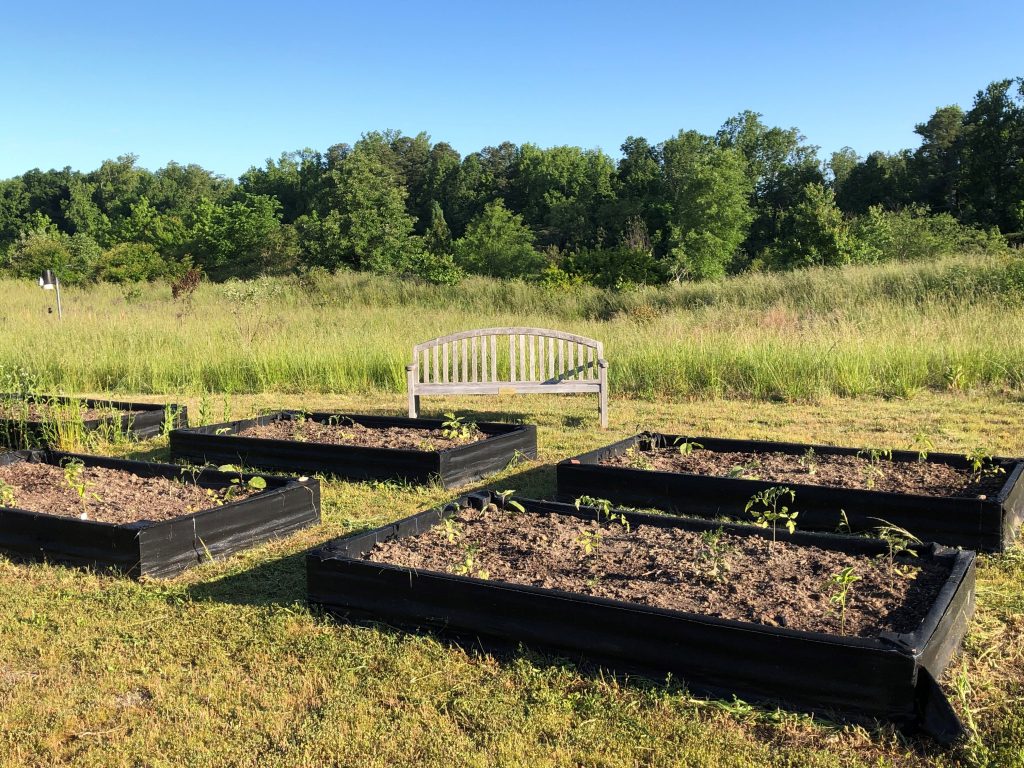
The seven raised beds in early spring. Plantings included tomatoes, peppers, eggplant and cucumbers.
Spring 2021
Although eager to get started, due to COVID-19 safety precautions we held off planting until early May. The decision turned out to be a good one since a cold snap surprised the region in late April.
With COVID-19 restrictions lifted and all participants vaccinated, the women finally visited the Garden at the end of May. Before their first visit, ReEstablish Richmond provided each participant with a gardening kit complete with gloves and tools, and they quickly dug in! Afterward, the women toured the Garden, pausing in the Cochrane Rose Garden for a photo.
Summer 2021
The weekly visits centered on gardening and so much more. There is a true sense this is a special outing and a time of community. On a hot afternoon, one woman shared a refreshingly cool yogurt and mint drink with the group. This prompted us to plant mint (in containers) as our next gardening task.
The women often bring their children and one of the great joys is seeing the kids’ excitement. They love digging in the soil and especially watering. The children are also fascinated with the nearby demonstration beehive in and we often walk over to take a look at the bees behind the plexiglass.
July 7, 2021, was an exciting day–our first harvest! The women and their children saw the bright red tomatoes, green peppers and purple eggplants and ran toward the garden beds. There was also great enthusiasm over cucumbers. One boy was jumping up and down. “He loves cucumbers,” his mom told me. “This is the first time he has seen them growing.”
Now that the summer season is waning, they’re starting to plan fall crops–kale, lettuce and spinach are on the list. This opportunity to partner with ReEstablish Richmond and to build relationships with the Afghan community has been a wonderful experience as we’re excited to continue to welcome and celebrate some of our newest neighbors.
